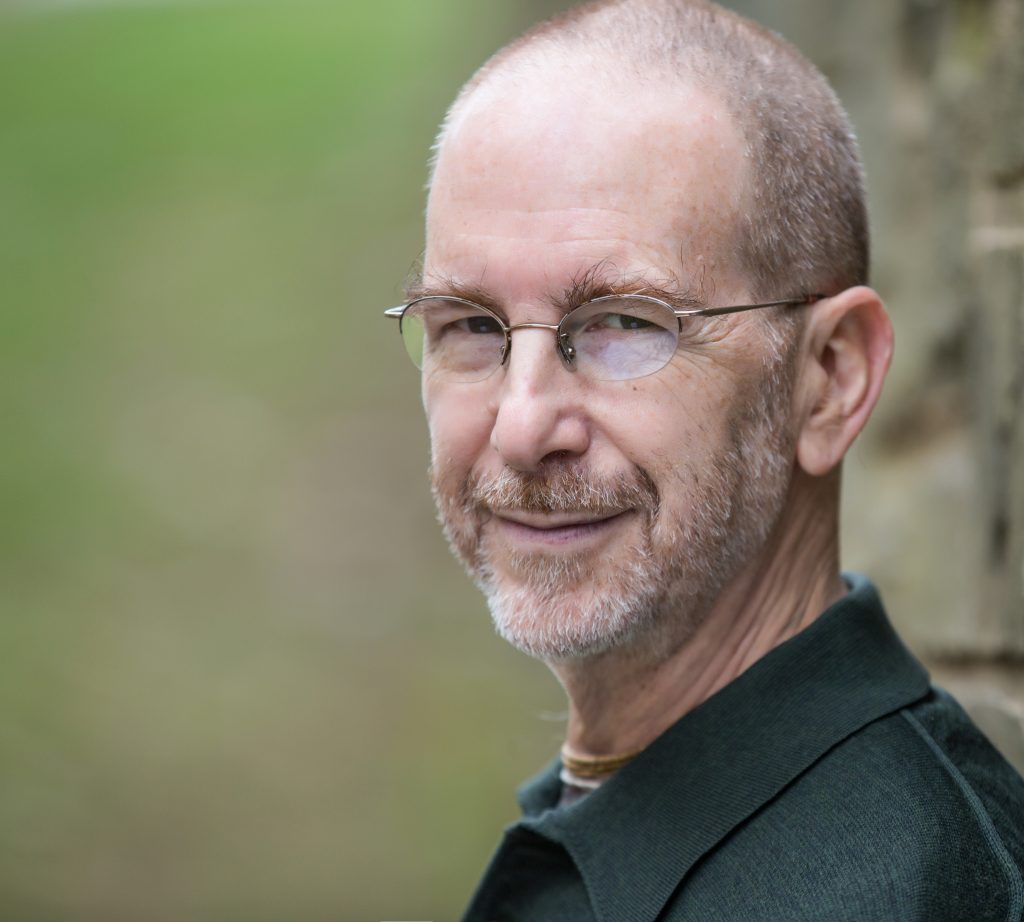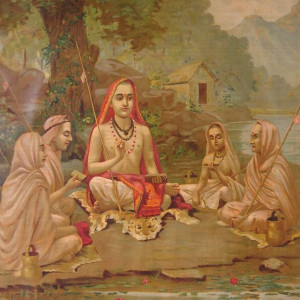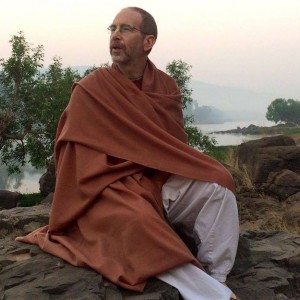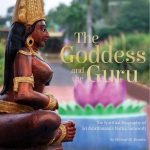In Search of the Highest Truth: Adventures in Yoga Philosophy (Excerpt) ~ Hari-kirtana das
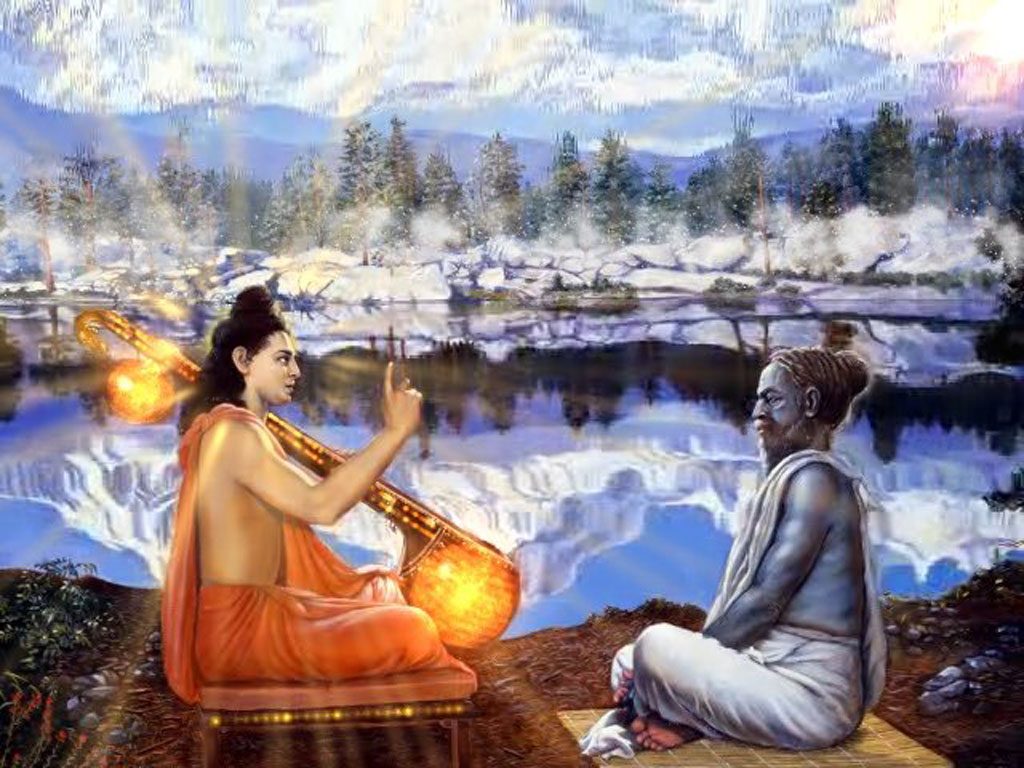
The following is an excerpt of In Search of the Highest Truth: Adventures in Yoga Philosophy, a trip into yoga’s spiritual dimension that offers readers an unconventional approach to discovering the enduring relevance of ancient yoga wisdom. A significant portion of In Search of the Highest Truth takes the form of dialogue between the author and students participating in yoga philosophy modules of yoga teacher training programs that the author has taught over the past several years. This excerpt is from one such chapter, which discusses the intersection of faith and knowledge in traditional yoga philosophy.
Hari-kirtana das: what is the essential question of philosophy? Not just yoga philosophy, but philosophy in general: what problem is philosophy trying to solve?
Student: What is the meaning of life?
Hari-kirtana das: What is the meaning of life, yeah. Or perhaps, “Does life have any meaning at all?” What else?
Student: It provides a frame of reference to understand the world.
Hari-kirtana das: Okay. Why do we need to understand the world?
Student: So you know what the world is and what your place in the world is.
Hari-kirtana das: Good. What else? What other practical thing comes from understanding the nature of the world?
Student: So you know what to do.
Hari-kirtana das: Yeah, so you know what to do. If you know how something works, then you know what to do with it. If you don’t know how a toaster works then you won’t know what to do in order to turn bread into toast. Philosophy is meant to help us understand what the world is, how the world works, and what our relationship to the world is. It provides a frame of reference that helps us to know what we should be doing. It’s a key with which to unlock the meaning and purpose of our lives.
What state of being would everyone like to attain?
Student: Happiness.
Hari-kirtana das: Yes, we want to be happy. Does everyone here want to be happy?
Students: Yes. <general agreement>
Hari-kirtana das: Does anyone here not want to be happy?
Student: Is serenity the same thing as happiness?
Hari-kirtana das: If serenity makes you happy, then yes. All right, how long do you want to be happy for?
Student: Forever.
Hari-kirtana das: Forever. Does anyone here not want to be happy forever?
Students: <silence>
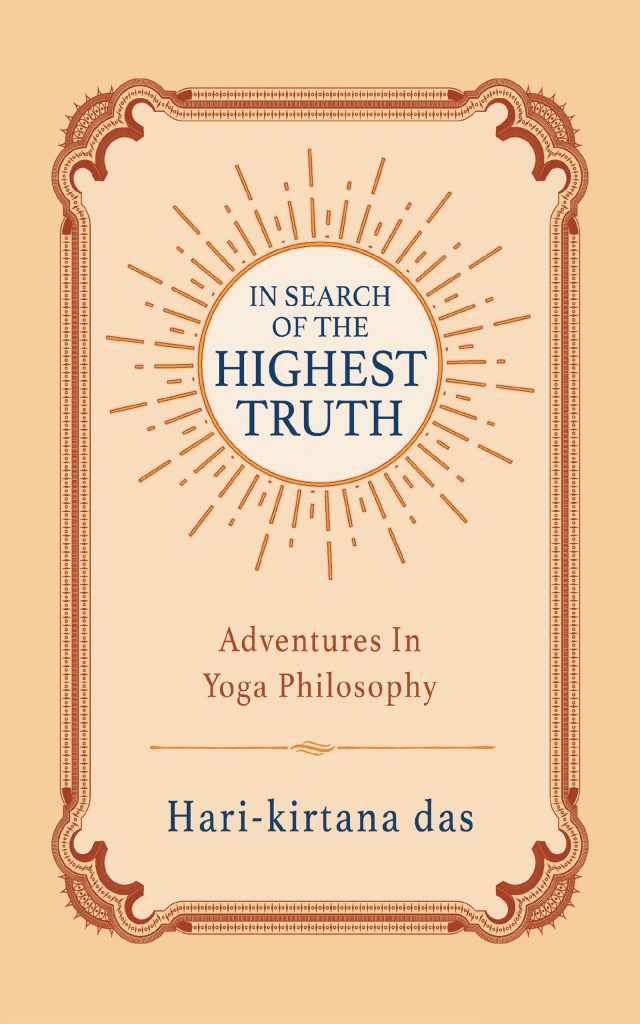 Hari-kirtana das: Okay, so everybody wants to be happy forever. How many of you are going to be happy forever?
Hari-kirtana das: Okay, so everybody wants to be happy forever. How many of you are going to be happy forever?
Students: <more silence>
Hari-kirtana das: Okay, so t here’s a problem. And the problem is suffering. Happiness comes of its own accord and we’re always very happy when happiness comes. Unhappiness also comes of its own accord and we’re always very unhappy when unhappiness comes. So, one of the questions of philosophy is, “Why is there suffering?” Why can’t I just be happy forever? What’s the problem? It’s my nature to want to be happy forever but it seems that suffering is inevitable. Why? How do I get rid of the problem of suffering? Do I have to sacrifice happiness in order to rid myself of suffering?
We’ll circle back to this problem in a bit. Now that we have a sense of some fundamental questions of philosophy, let’s entertain another question: what is the fundamental question of theology?
Student: How did we get here?
Hari-kirtana das: Okay, the nature of creation and how we came into being. What else?
Student: Is there a God?
Hari-kirtana das: Is there a God? Theology assumes the existence of God, so within the parameters of theology the question is not so much, “Is there a God?” but rather, “What is the nature of God?” More specifically, “What is the nature of God’s relationship to the world and, since we’re part of the world, what’s the nature of our relationship with God?” The most popular problem of theology is, “If God is all good and all-powerful then why is there evil?” The conundrum is this: evil exists, therefore either God must not be all-powerful because God cannot prevent the existence of evil or God is all powerful and God’s sanction of or acquiescence to the existence of evil indicates that God is not all good. What is it that we don’t like about evil What’s the problem with evil?
Student: It creates suffering.
Hari-kirtana das: Yes. Therefore, the fundamental question of theology rolls right back to, “Why is there suffering? How can I be happy forever?” The quest for eternal happiness is where religion intersects with philosophy. Given that they are each concerned with the same fundamental problems, you would think that they are somehow mutually reinforcing, that they complement one another in a synergistic or even holistic way.
In modern life, however, we tend to associate religion with faith and philosophy with reason and thus think of them as two separate enterprises, as mutually exclusive rather than mutually reinforcing. A significant reason for this is that, in modern times, philosophy has, for the most part, been consumed by science. We characterize science and philosophy in terms of knowledge and thinking. We characterize theology and religion in terms of faith and feeling.
Traditional yoga philosophy does not make this distinction. In traditional yoga, faith and knowledge are as inseparable as two sides of the same coin. This is something that makes it hard for us to wrap our heads around yoga philosophy: we’re accustomed to disassociating knowledge from faith. In a modern secular society our social intercourse is based on a shared, objective conception of knowledge, the “factual character of the natural world.” By contrast, the proper place for the concerns of faith, “the equally important but utterly different realm of human purposes, meanings, and values,” is in our private lives. At best, each tolerates the other in a mood of “respectful noninterference.” At worst, they breathe hellfire and dinosaurs at one another.
Something I would like you to consider is how faith is the mandatory prerequisite for knowledge. It doesn’t matter what kind of knowledge you pursue; you still have to start with faith: faith that the subject matter has value, faith that you have the ability to learn it, faith that you can go to a school where there are teachers who are qualified to teach it, etc.
If you go to college and sit down in a class and the professor starts talking, then you’ll take notes even though you have no idea whether or not what the professor is saying is correct. You accept what they say on faith until you acquire enough knowledge to find out for yourself whether or not the professor was correct. Faith in the possibility of knowledge always precedes the acquisition of knowledge. Therefore, faith is the mandatory prerequisite for knowledge.
For the past 500 some odd years, with the advent of modern secularism, we’ve had a division between philosophy and theology, between faith and knowledge. And the point I’m making is that in order to see the world through the eyes of traditional yoga philosophy you need to put those two things back together. This is one reason why understanding yoga philosophy is so challenging for us: consciously or otherwise, we’re used to making a clear division between faith and knowledge. Yoga philosophy doesn’t recognize this division. In order for us to enter into the mysteries of yoga philosophy we have to re-unite faith and knowledge.
In Search of the Highest Truth: Adventures in Yoga Philosophy, is available in Europe on Amazon.com: https://www.amazon.co.uk/dp/0998077305/
Hari-kirtana das is the author of In Search of the Highest Truth: Adventures in Yoga Philosophy. He’s been practicing yoga for the better part of 40 years, teaches yoga classes, leads yoga and meditation workshops and retreats, and teaches as a faculty member of numerous Yoga Teacher Training programs. He lives with his wife in Washington, D.C. You can learn more about Hari-kirtana by visiting his website: http://www.hari-kirtana.com/

